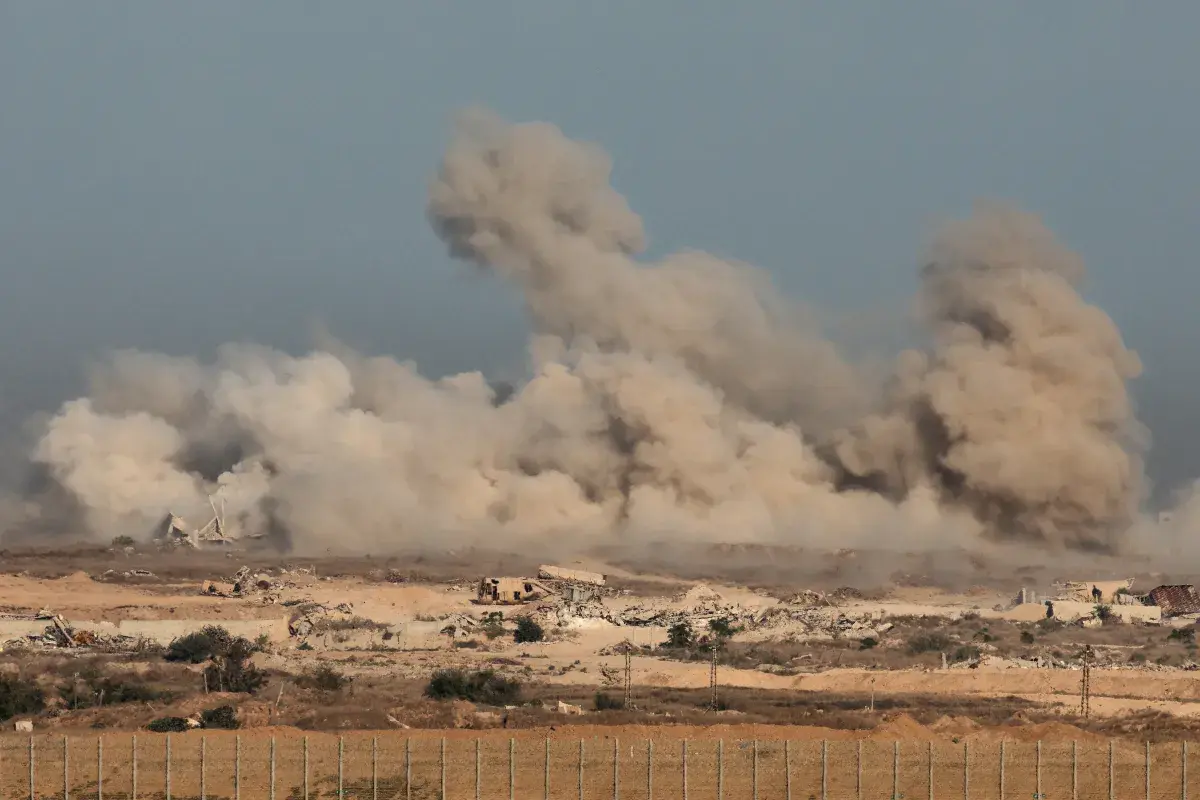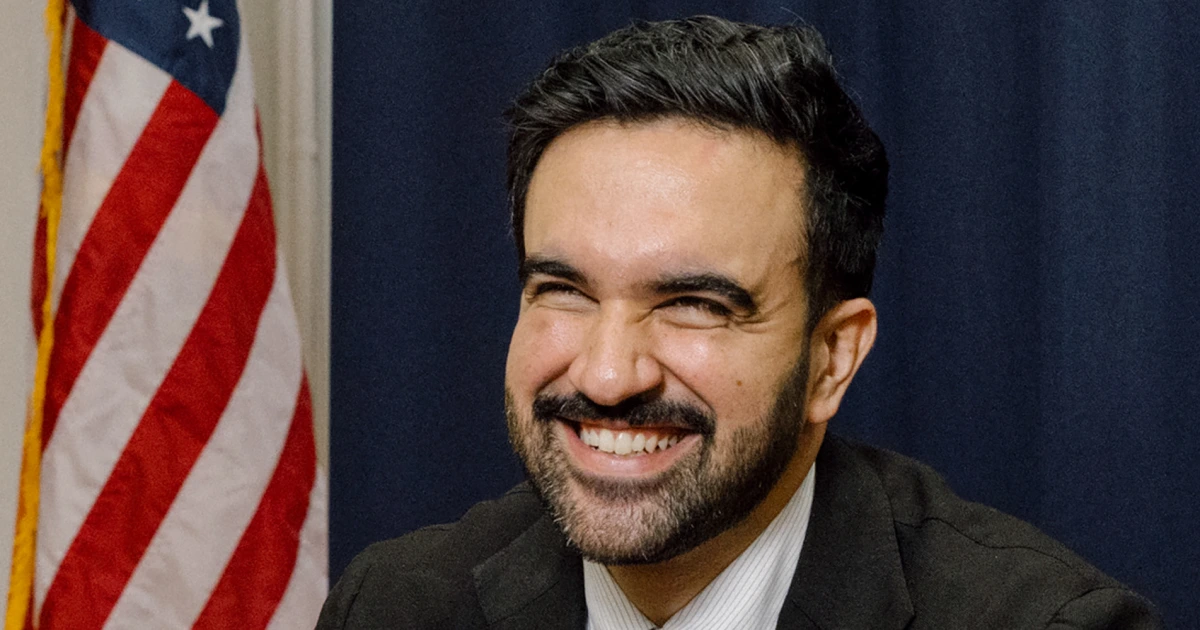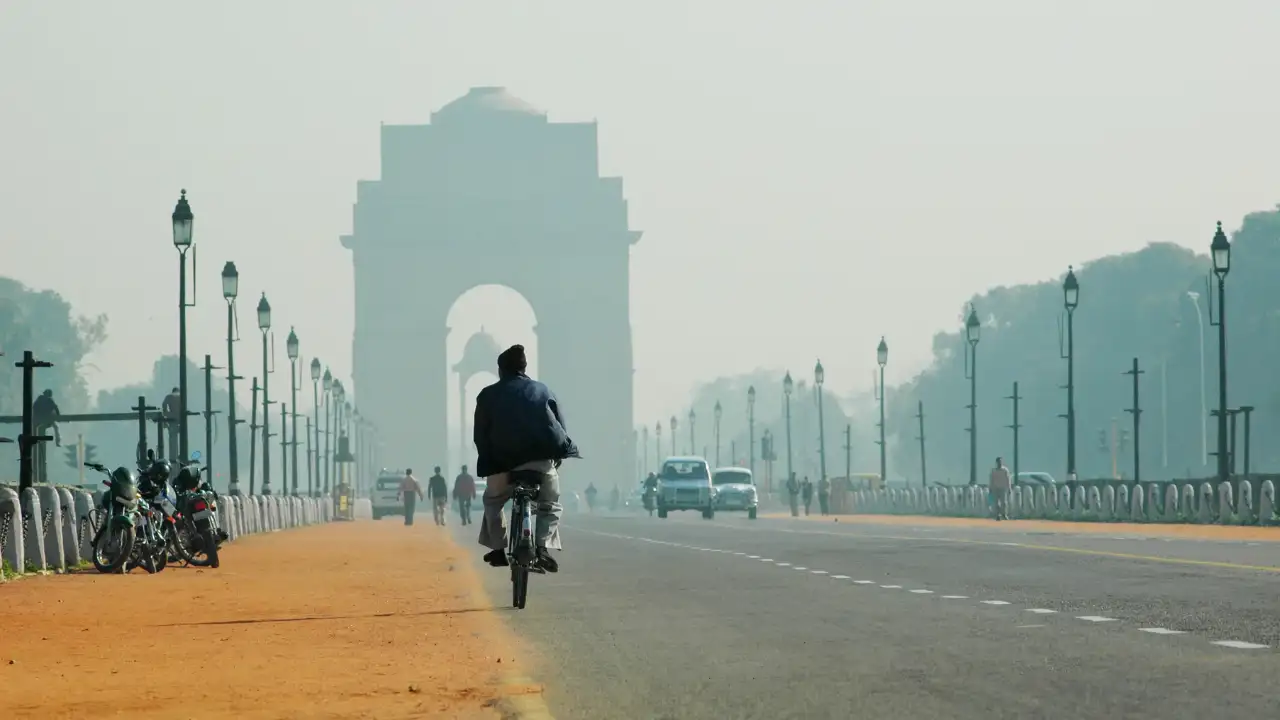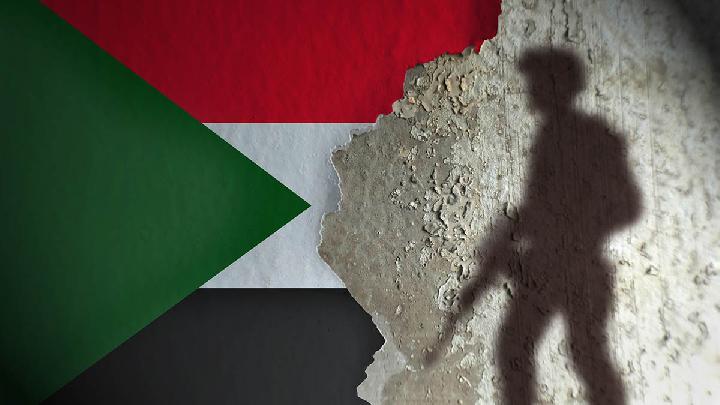Copyright Newsweek

It's been one month since Israel and Hamas reached the first phase of a Gaza ceasefire proposed by President Donald Trump, and the anniversary looms of a separate U.S.-backed truce in Lebanon reached between Israel and Hezbollah in November 2024, yet the Israel Defense Forces (IDF) continues to conduct operations on both fronts. IDF spokesperson Lieutenant Colonel Nadav Shoshani argued that Israeli attacks in the two countries are justified due to ongoing enemy action and attempts to rebuild capabilities ravaged by the two-year war that has rocked the Middle East. "I think what's clear is that Hamas and Hezbollah, in the north in a similar way, are interested in violating the agreement," Shoshani told Newsweek at a briefing on Tuesday. "They're interested in the agreement being held on our side, and they're interested to violate it without any consequences." Newsweek reached out to representatives of Hamas and Hezbollah for comment. Gaza In Gaza, where the regional conflict began when Hamas launched a massive surprise attack against Israel in October 2023, several attempts at peace were pursued by then-U.S. President Joe Biden, whose administration managed to secure a last-minute deal with the backing of the incoming Trump team just ahead of Inauguration Day in January. That three-stage deal brought the first sustained period of calm in over a year, but collapsed in March over Israel-Hamas disputes over how to progress to the second phase. The next major breakthrough would not occur until last month, when Israel and Hamas once again agreed to the first phase of an even more comprehensive 20-point plan outlined by the White House. In addition to securing a permanent cessation of hostilities and the release of Israeli hostages seized by Hamas during its initial assault and Palestinian prisoners held in Israeli prisons, the deal included a number of other measures such as the establishment of a technocratic committee of independent Palestinians chaired by Trump to replace the Hamas-led government in Gaza and the deployment of an International Stabilization Force to substitute Israeli military occupation. Thus far, Israel has released 2,058 Palestinian prisoners, and Hamas has released the majority of the 40 living and dead hostages still in Gaza at the time of the ceasefire, with efforts ongoing to locate the remains of the final four captives. International Committee of the Red Cross President Mirjana Spoljaric Egger, whose organization is advising on the search effort and facilitating the transfer of hostages and prisoners, recently told Newsweek that "the recovery of bodies is enormously difficult in the current circumstances," given the war-torn conditions in Gaza. But Israel has also accused Hamas of deliberately delaying the process and even staging the discovery of bodies while subversively seeking to regroup and conduct attacks on Israeli troops. Shoshani said he did not expect the ceasefire deal to progress to the next stages until Israel assessed that Hamas was fulfilling its side of the bargain in full. "I think before we can speak about stage B, or stage two, whatever you want to call it, the stage one should be completed," Shoshani said. "Not all the hostages have been returned. That should have happened a month ago. Hamas is not disarming. And before we can speak about the future of Gaza, there needs to be a process where all hostages return, where Hamas disarms, where an international security force is put into place." "So, I think that's currently where it stands. On our behalf, we're committed to the agreement," he added. "We're also committed to the security of Israel. We're also going to make sure that all parties are committed to this agreement and make sure that this agreement is held and that Hamas doesn't use this agreement as an opportunity to prepare for the next attack against us." That said, he did acknowledge that there was "an ongoing process" regarding the timeline and constitution of the planned International Stabilization Force. This process plays out amid recent complications, such as Israeli officials banning Turkish troops from participating over Turkey's decision to issue arrest warrants for Israeli Prime Minister Benjamin Netanyahu and other top officials for war crimes, as well as the United Arab Emirates indicating its unwillingness to contribute to the deployment in the absence of a clear framework. Meanwhile, violence continues to erupt in Gaza, with the IDF announcing Tuesday that it had "struck and eliminated" a suspected militant who had crossed the so-called "yellow line." It's one of a series of post-ceasefire operations that have killed more than 240 Palestinians over the past month, according to the Gaza Health Ministry. Hamas and allied Palestinian factions have also been tied to deadly attacks following the truce, including one that killed three IDF personnel in Rafah late last month. The attack took place in the Israel-controlled zone beyond the "yellow line," where Shoshani estimated that anywhere from "dozens to the low hundreds" of Hamas fighters remained. In a statement issued Sunday, Hamas' Al-Qassam Brigades military wing asserted that Israel "bears the full responsibility for clashes with our fighters in Rafah who are defending themselves in an area under Israel’s control." Lebanon Israel has also continued to press forward with strikes in Lebanon despite the ceasefire agreement reached in November 2024. The deal put an end to the most intensive era of Israeli military action in Lebanon since the monthlong war in 2006, with the IDF simultaneously conducting bombardments of suspected Hezbollah positions and sending troops in from the south. The operations took a decisive turn in September 2024 when electronic devices, particularly pagers, believed to primarily have been used by Hezbollah and its allies, detonated across Lebanon, killing dozens and injuring thousands, in what has been widely attributed to Israeli covert action. Less than two weeks later, the IDF killed Hezbollah Secretary-General Hassan Nasrallah in a strike targeting his underground compound in the southern suburbs of Beirut. The November ceasefire also had profound consequences. On the same day it was secured, an Islamist-led rebel offensive was launched against the government of neighboring Syrian President Bashar al-Assad, resulting in his downfall just 11 days later. Hezbollah, having mobilized for years in support of Assad, a fellow member of the Iran-led Axis of Resistance coalition, and among the first external actors to launch attacks against Israel in support of Hamas when the war in Gaza erupted, did not intervene in Syria. The change of power in Damascus, now led by Interim President Ahmad al-Sharaa, has been embraced by the White House, though it has been met with suspicion by both Israel, which has expressed skepticism about his militant past, and Iran's Axis of Resistance, now cut off from a key land route tying Hezbollah to Tehran. Even in its battered state, however, Hezbollah is assessed to possess considerable capabilities in terms of firepower and manpower. And Israeli officials have repeatedly accused the group of seeking to reconstitute its military force and failing to withdraw from positions south of the Litani River as outlined in the truce. "On our northern front, while Hezbollah has suffered significant blows over the past two years, its intentions haven't changed," Shoshani said. "Sadly, it seems that the organization continues to act and to call for Israel's destruction and is once again working to rebuild its military capabilities. To pursue that goal, we have recently been identifying more and more attempts from Hezbollah to rebuild its operational capabilities and reestablish the very infrastructure that threatens Israel's security." Shoshani stated that Israel had identified "hundreds of violations" against the ceasefire on Hezbollah's part, and that the IDF was executing "precise strikes against those terrorist targets, removing threats and acting in accordance with agreements and according with the understandings with our partners and the Lebanese." "We are committed to the agreement, but it must be held," Shoshani said. "We will not return to the reality of October 7, [2023] with thousands of terrorists on our border in walking distance from our civilians." In the latest operations, the IDF announced Monday that it had killed a Hezbollah member alleged to be involved in weapons smuggling from Syria and had also struck several "terrorist infrastructure" sites in the Beqaa, Nabatieh and elsewhere. Hezbollah has also repeatedly accused the IDF of violating the terms of the truce by conducting such strikes and refusing to withdraw Israeli forces from several positions in southern Lebanon. The Lebanese government has been caught between the two sides. While Lebanese President Joseph Aoun and Prime Minister Nawaf Salam have expressed support for the position that the state alone should possess such weapons, they have also condemned Israel's ongoing strikes as well as the lingering presence of Israeli forces in the south. In a speech commemorating Martyrs' Day on Tuesday, Hezbollah Secretary-General Sheikh Naim Qassim, who succeeded Nasrallah last year, accused the Lebanese government of attempting to placate Israeli demands by focusing on the group's arsenal, while, in reality, "Israel does not want to leave because it wants to control Lebanon politically, economically, socially, financially and geographically, and it wants Lebanon to be a backyard for the expansion of settlements, as part of 'Greater Israel.'" As such, Qassim asserted that "we will not give up our weapon that gives us this determination and this strength, and enables us to defend."



